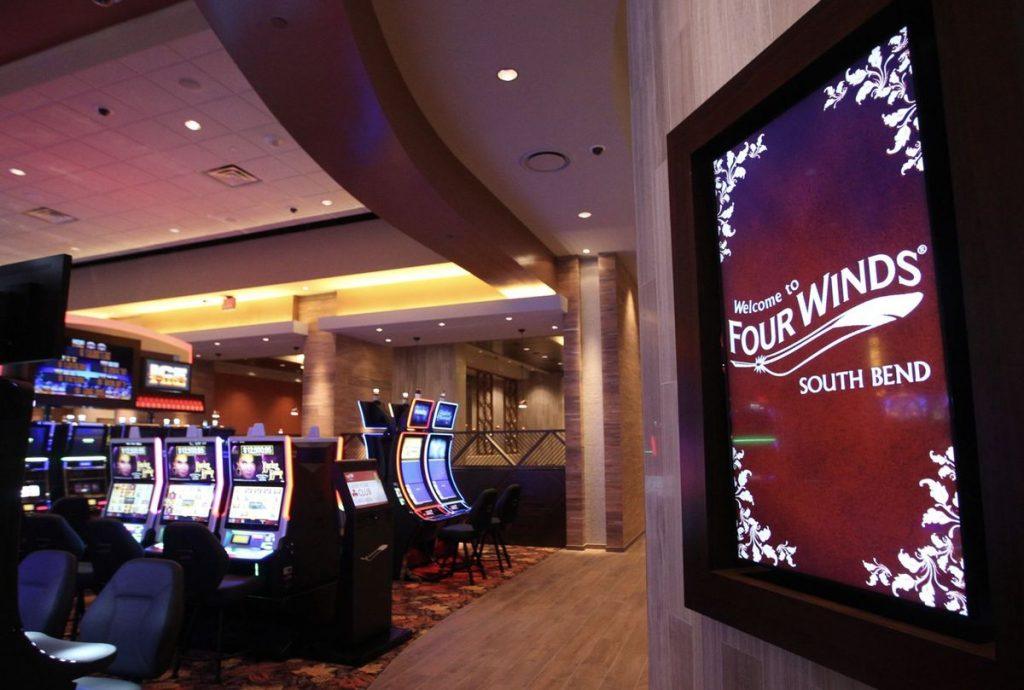Indiana’s Commercial Casinos Could Take Hit Following Opening of Tribal Venue
Posted on: January 17, 2018, 03:00h.
Last updated on: January 17, 2018, 02:19h.
The opening of the Four Winds Casino South Bend on Tuesday was an exciting moment for the Pokagon Band of Potawatomi Indians, who now operate the first tribal casino in the state of Indiana.

But it’s a moment of dread for the 13 commercial casinos currently operating in the state, who fear that the new competitor will have an adverse impact on their revenues.
The casino is the first for the tribe in Indiana, but is the fourth overall for the Pokagon Band, which already runs three resorts in southwestern Michigan.
Those casinos, along with competition in other surrounding states, have already lured away some gamblers who might otherwise have gone to the privately-owned venues throughout Indiana.
Tribal Casino Will Hurt Commercial Casinos, State Tax Revenues
According to the Indiana Gaming Commission, that out-of-state competition has caused the state’s gaming industry to lose about 3,000 jobs since hitting its peak back in 2009.
Now, the Casino Association of Indiana says that the Four Winds could cut profits at existing commercial resorts in the state by 4 percent in the next year, and by 9 percent over the next five years. State budget planners are preparing for a 12 percent drop in tax revenue from casinos over the next two years.
Perhaps the biggest complaint from existing operators is that they don’t think the Pokagon Band is competing on a level playing field.
While those private casinos pay about 27 percent in taxes on their gambling profits, the Four Winds Casino will not pay state taxes, paying only 2 percent of its profits to the city of South Bend as part of a local agreement. As a tribal casino, they are also exempt from state regulation.
Some of the nearby casinos are expecting to take a hit, but believe they can weather the storm. For instance, the Blue Chip Casino in Michigan City, which is owned by Boyd Gaming, says that their investment in non-gaming amenities will help them survive increased competition.
“We have seen several new casino properties open in this region over the last 10 years, and Blue Chip has continued to compete successfully each time over that time frame,” said Boyd Gaming Vice President David Strow.
Impact Could Be Softened By Resort Limitations
While the new Pokagon Band casino is certainly a large venue, there are a few missing components that might limit its impact on the state gaming industry, at least for now.
While initial plans included a 500-room hotel and a large tribal village, those elements do not yet exist at the Four Winds South Bend site.
In addition, the resort is being run as a Class II gaming facility. That means that the casino cannot offer table games or true slot machines.
Instead, the gaming machines offer a type of electronic bingo that is made to look like a traditional slot machine instead, with most of the difference between the game types being invisible to players.
Those limitations are in place because the Pokagon Band has not negotiated a gaming compact with the state of Indiana, limiting what they are legally entitled to offer to their customers. A future agreement could allow for more games to be offered, but that would almost certainly require the tribe to make payments to the state as well.
No comments yet